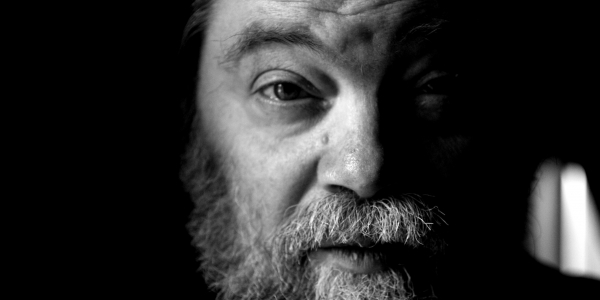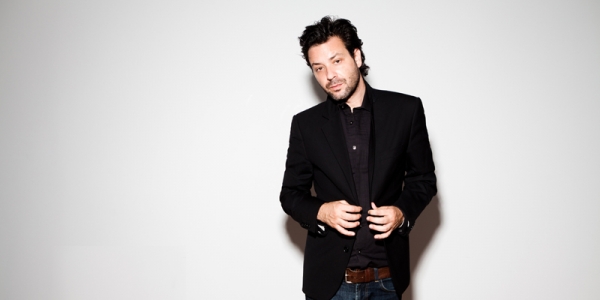Worse was to come in the early ’70s when Erickson followed a path portrayed originally in Ken Kesey’s One Flew Over The Cuckoo’s Nest when he pled insanity to avoid imprisonment on drugs charges. By the ’90s Erickson was living in poverty in Austin, his musical career seemingly over forever. A successful court action by his younger brother Sumner wrested control of Erickson’s affairs from his mother, and Erickson took his first steps on road back to public performance. Successful appearances in Austin and California were followed by a European tour and a studio collaboration with Okkervil River. Now, almost 50 years after Erickson first strummed the distinctive opening chords to You’re Gonna Miss Me, he’s on his way to Australia.
Prior to the interview with Roky I had been reminded of Erickson’s idiosyncratic conversational style: the occasional pregnant pause, the discursive wander into seemingly incomprehensible territory. Erickson, however, proves to be a responsive interviewee, unfailingly polite and able to access the recesses of his mind better than you might expect of someone with his chemical and psychiatric history.
Born in 1947, Erickson began playing guitar early in his high school years. “I played one, it was a very small guitar I had. It was a little Fender. I learnt how to play Before You Accuse Me, Take A Look at Yourself,” Erickson recalls. Erickson’s younger brother Sumner took his own musical path, becoming a successful classical musician. Erickson says there was some level of shared musical experience in the family, though his mother was concerned that Erickson stick to the one instrument, discouraging him from taking up guitar until he’d mastered piano. “She was very concerned with me learning different instruments. She organised me to go to a piano teacher so I could do my piano lessons,” Erickson says.
Erickson left high school before graduating, and formed his first group, The Roulettes, before moving onto The Spades. The Spades would be lost to the backpages of psychedelic history but for the band’s most memorable song, You’re Gonna Miss Me, penned by Erickson, and subsequently re-recorded by the 13th Floor Elevators after Erickson joined that band in 1965.
Erickson had met Tommy Hall and Stacey Sutherland earlier that year at a gig in Austin. “I was playing in a club on a side street. I’d heard talk of these places where you could go and play and eat, and I was interested in places like that,” Erickson says. “I was there performing with John Kearney and his band, and they wanted me to be their lead singer. [Hall and Sutherland] came to me and said ‘these guys are good, but we think we’re better’, so I should get away from them and join their band”.
The band’s name derived from the superstition of some building owners in the United States to having a 13th floor. “When I came along, they said they were thinking about a name and someone mentioned an elevator, and how sometimes someone will not want you to go to the 13th floor,” Erickson says. “So they thought it’d be a good idea to call the band the 13th Floor Elevators.”
With its prototypical garage punk riff complimented by Hall’s distinctive electric jug – not to mention Erickson’s ear-shattering scream, The Elevators’ version of You’re Gonna Miss Me would become an instant garage classic. The album on which the song appeared, The Psychedelic Sounds of the 13th Floor Elevators, was produced by Leland Rogers, the brother of country singer Kenny. While Rogers’ approach in the studio has been criticised over the years, Erickson has no complaints. “I liked him. I tolerated him; you always let him have his way,” Erickson says. “He was just a real nice person. He always explained what he was doing, always knew what he was doing, told us not to try and change anything. He was sweet to us.”
While the San Francisco psychedelic scene – centred around bands such as the Grateful Dead, Country Joe and the Fish and Jefferson Airplane – would become known as the epicentre of the American psychedelic music movement, it was the famously big state of Texas that produced many of the era’s most legendary psychedelic bands. Erickson isn’t able to articulate what it was about the Texas scene that distinguished it from its west coast cousin.
“I never did learn too much it was, but I would listen to what people would say. I would practice a lot with them,” Erickson says. “But to really find out about what was different, well, those books get pretty difficult to read – they’re harder to read than the Bible! They talk a lot about drugs and that sort of thing,” he says.
In fact, it was the band members’ copious use of psychedelic drugs that led to the band’s demise. In 1968 Erickson was diagnosed with schizophrenia and admitted to a psychiatric hospital where he was given electroconvulsive therapy (ECT). A year later, and Erickson was arrested for possession of marijuana. Faced with the prospect of a lengthy jail term, Erickson pleaded insanity and was sent to the Austin State Hospital, where he remained under 1972.
Things weren’t going too well with the other members of the Elevators, either: guitarist Stacey Sutherland, once described by Sand Pebbles bass player Chris Hollow as the ‘dark lord’ of the Elevators, died in 1978 after a domestic dispute with his wife went horribly wrong. Erickson is diplomatic when referring to his former band mate’s decline into drug addiction, an addiction that according to rumour was the source of his death. “I would hear about different members of my group. I’d hear rumours, and I’d have my own ideas,” Erickson says. “I’d hear a bunch of rumours around that time, and the rumour was that Stacey had got into drugs. That was the rumour. That was interesting – but it’d be better to get someone else’s view on that.”
Upon his release from the psychiatric hospital, Erickson returned to music, forming Roky Erickson and the Aliens. Erickson’s solo material typically contained strong visual imagery consistent with his variable mental state. Songs such as Two Headed Dog and I Walked With a Zombie have now become classic songs in their own right; at the time of their release, the tracks symbolised the psychological difficulties Erickson was grappling with. Erickson locates the subject of much of his solo material in the context of the literature he was reading at the time. “I enjoyed writing songs about what I’d read about,” Erickson says. “Books are real strange. You come upon the thing, and all of a sudden you come upon a group of them, and they’re all lumped together, and they’re all telling you all this stuff about things you’d be interested in hearing about,” he says.
Already showing regular and serious mental health problems, Erickson’s troubled life would take a bizarre turn in 1982 when he asked a Notary Public to witness a statement that Erickson was in fact an alien. In the late ’80s Erickson was arrested for mail fraud; despite the charges being dropped, Erickson withdrew almost completely from music, living in rundown accommodation in the suburbs of Austin. The 2005 film, You’re Gonna Miss Me shows Erickson as a dishevelled shadow of his former self, bathed in a sea of white noise that somehow comforts his fragile mental state. Sumner Erickson, unhappy with his mother’s efforts, eventually takes court action in to have himself declared Erickson’s legal guardian. The final scenes of the film feature Erickson playing guitar for the first time in many years, to the delight of Erickson fans everywhere.
It was to be the start of a comeback few expected. In 2005 Erickson was invited to play at the Austin City Limits Music Festival, the first stage of a road to musical recovery that would see him play the Coachella festival in 2007, as well as touring in Europe. In 2008 Erickson teamed up with Okkervil River to record an album, as well as to tour with Texan psychedelic band The Black Angels. “[Okkervil River] were real nice to me,” Erickson says. “I had gone into a store and seen this album sitting there called The Black Rose or something like that [referencing Okkervil River’s 2005 album Black Sheep Boy]. I knew there might be one by Okkervil River,” he says.
On the eve of his first tour to Australia, Erickson seems happy and content. With his wife, Dana, helping with his business and personal affairs, Erickson is enthusiastic about the impending trip to Australia. “Yeah, I definitely need to be comfortable these days, so yes I am,” he says. “I have a bunch of stuff we’re getting ready for the shows in Australia, and we’re rehearsing all of that.”
BY PATRICK EMERY

